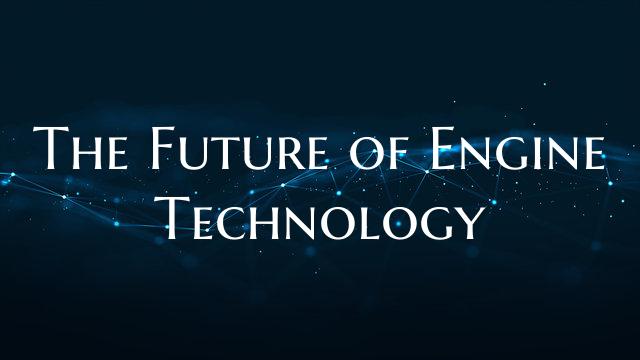The Future of Engine Technology
In an era with an ever-growing demand for energy efficiency, sustainability, and performance, the future of engine technology promises groundbreaking advancements that will revolutionize various industries. From automotive to aerospace, marine, and beyond, the evolution of engines is set to shape the way we live, work, and travel in the years to come.
One of the key trends driving the future of engine technology is the shift towards electric and hybrid powertrains. With a heightened focus on reducing emissions and combating climate change, electric vehicles (EVs) have gained significant momentum. Advances in battery technology have led to increased energy density, longer driving ranges, and faster charging times, making EVs a viable alternative to traditional internal combustion engine vehicles. Furthermore, hybridization – combining internal combustion engines with electric power – offers a transitional solution that maximizes efficiency while reducing environmental impact.
Another exciting development in engine technology is the emergence of alternative fuels. As the world seeks to move away from fossil fuels, biofuels, hydrogen, and synthetic fuels are being explored as sustainable alternatives for powering engines. These fuels can be used in internal combustion engines with minimal modifications, offering a more environmentally friendly option without the need for a complete overhaul of existing infrastructure.
The integration of digitalization and connectivity is also set to redefine the future of engines. The rise of the Internet of Things (IoT) and artificial intelligence (AI) has enabled engine manufacturers to optimize performance, predict maintenance needs, and enhance overall efficiency. Real-time data monitoring, remote diagnostics, and predictive analytics are empowering operators to make informed decisions that maximize engine lifespan and minimize downtime.
Moreover, advancements in materials science are pushing the boundaries of engine design and performance. Lightweight materials, such as carbon fiber composites and high-strength alloys, are revolutionizing engine construction, leading to reduced weight, improved fuel efficiency, and enhanced durability. Additive manufacturing, or 3D printing, is also enabling the production of complex engine components with greater precision and customization.
Looking ahead, the future of engine technology will continue to be shaped by a relentless pursuit of innovation, sustainability, and performance. With a focus on electrification, alternative fuels, digitalization, and advanced materials, the engines of tomorrow are poised to deliver unprecedented levels of efficiency and environmental responsibility across industries. As we navigate towards a more sustainable future, engine technology will play a pivotal role in driving progress and shaping the way we power the world.

